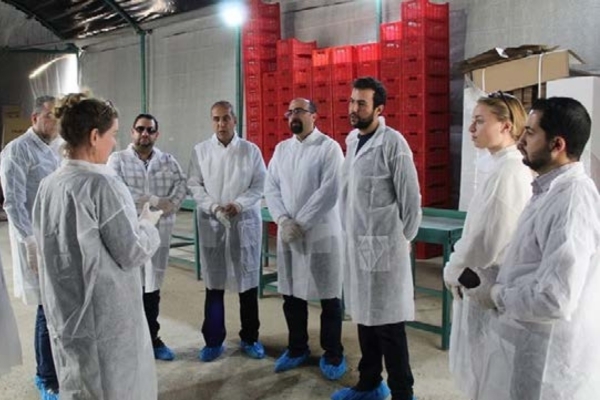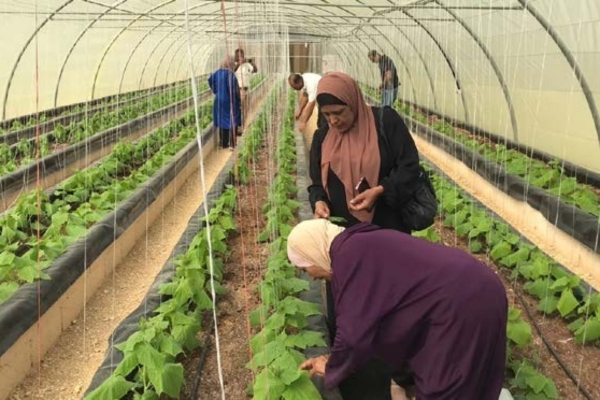The SEED Project Innovation Program
The Sustainable Energy and Economic Development (SEED) Project designed and implemented a dedicated innovation program focused on entrepreneurial projects aimed at addressing local challenges in energy efficiency and renewable energy. The program empowered entrepreneurs who view energy solutions as a means for positive impact and competitive advantage, in collaboration with local partners.
The program focused on delivering sustainable solutions and supporting entrepreneurs in exploring cutting-edge technologies in energy efficiency and renewable energy. It provided opportunities for small and medium enterprises (SMEs) and community-based organizations through open competition, with participant evaluations based on environmental, economic, and social criteria. Winners received tailored support, including mentoring and access to essential resources.
Through these efforts, the project turned local challenges into opportunities for growth and innovation, contributing to the sustainability and efficiency of the renewable energy sector in Jordan.
Harvesting Innovation: The SEED Entrepreneurial Farm
The “SEED Entrepreneurial Farm” is a flagship outcome of collaboration between the project and renewable energy advocates from the local community. It emerged from the SEED Innovation Program and serves as a model for smart agricultural applications that integrate energy efficiency and renewable energy solutions. The farm combines these technologies with strategies for gender equality, food security, and climate resilience.
Established with the participation of local farmers and agricultural innovators, the farm enables the sustainable integration of energy-efficient and renewable solutions into agricultural practices. It meets all its energy needs through a solar energy system provided by the project to the municipality of Muaddi in the Deir Alla district, reinforcing sustainability in targeted areas. The project transformed underutilized public land into a hub of innovation that generates employment and facilitates knowledge transfer.
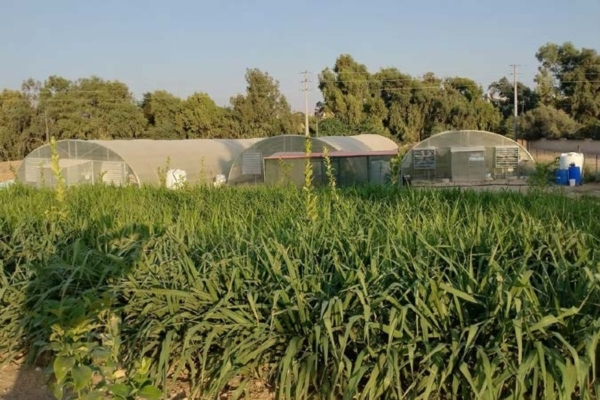
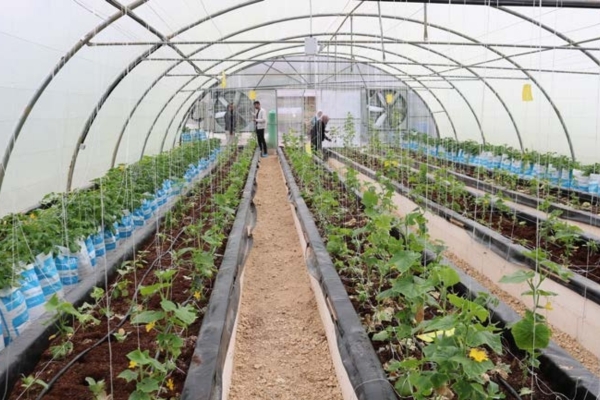
The Farm is equipped with modern greenhouses featuring cooling systems, temperature and humidity sensors, closed irrigation systems, and hydroponic farming paths. It also provides beneficiaries with shared facilities such as workspaces, storage units, solar drying equipment, heat pumps, water tanks, composting units, and recycling stations. The project supplies essential agricultural inputs like seeds and fertilizers, helping farmers transition to sustainable farming methods and improve productivity.
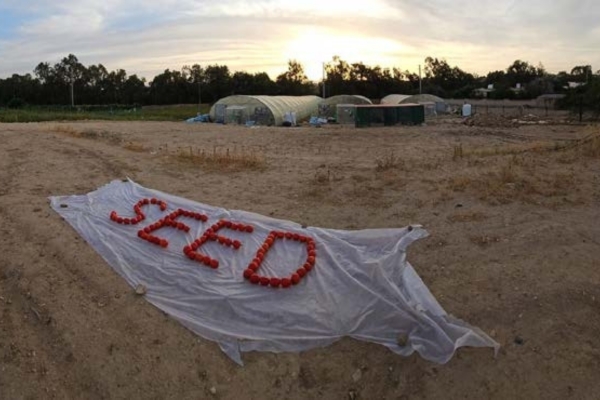
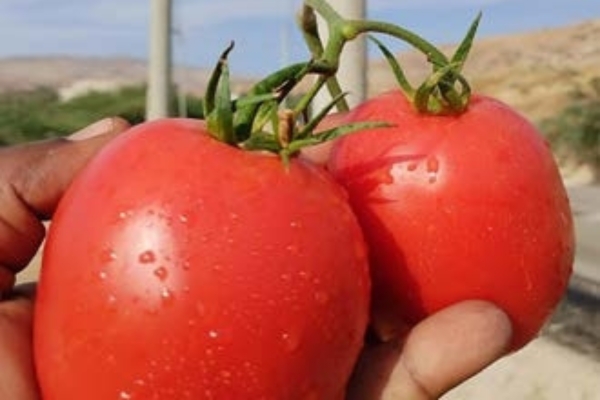
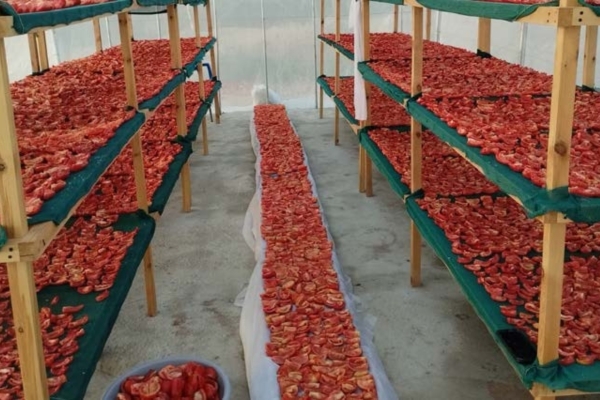
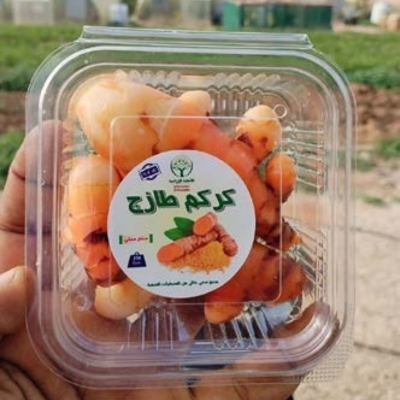

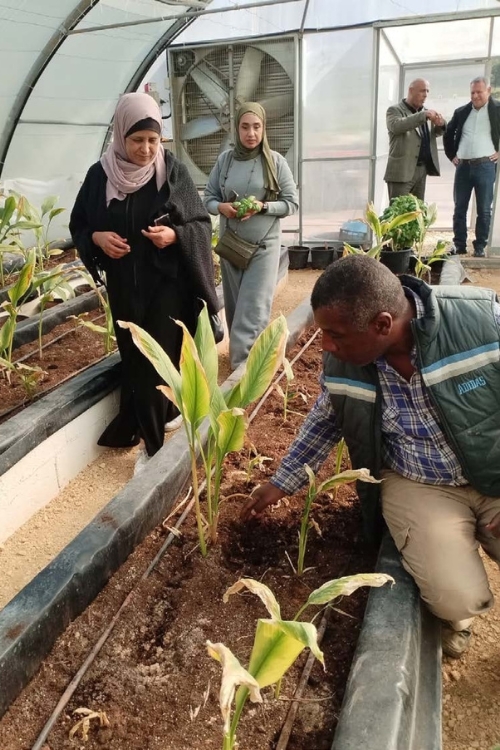
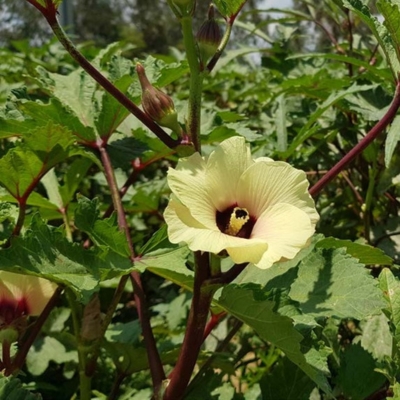
Effective Partnerships: A Key to Innovation Success
Partnerships were a cornerstone of the innovation program’s success. A wide range of stakeholders contributed to its implementation and the development of sustainable solutions—including agricultural extension departments, municipalities, private sector companies, business incubators and accelerators, and universities. Local communities and experts also played an essential role in co-designing and implementing the integrated solutions featured in the Entrepreneurial Farm.
Thanks to this innovation program, local entrepreneurs explored new technologies such as solar-powered crop drying and heat pumps, which helped farmers extend crop shelf life and access both local and international markets. The farm also served as a platform for testing innovative agricultural practices—such as turmeric cultivation—and producing diverse crops using smart farming technologies supported by energy efficiency and renewable energy solutions, including physalis fruit, okra, and tomatoes.
Through these effective partnerships, the project contributed to a transformation in both the agriculture and energy sectors in Jordan, fostering an environment conducive to innovation and sustainable growth.
Strengthening Collaboration and Knowledge Exchange
The Sustainable Energy and Economic Development (SEED) Project launched a series of local and international study tours to foster knowledge sharing and build strategic relationships that drive innovation. Local community-innovation leaders joined field experts on private-sector visits to identify challenges and opportunities in energy efficiency and renewable energy, helping pinpoint innovation topics that fit the local context.
The project also raised awareness in the agricultural sector through close cooperation with the Department of Agricultural Extension. This partnership led to training and advisory workshops for farmers at the SEED Entrepreneurial Farm and surrounding areas, transforming the site into a field school where local experts support the wider community.
At the international level, the project organized brainstorming sessions with Canadian universities such as York and Calgary, enabling engineering students to work alongside peers in Jordan to devise innovative solutions for the challenges facing Deir Alla and Ajloun.

